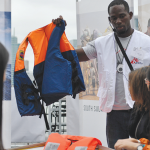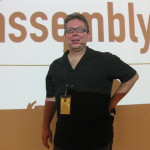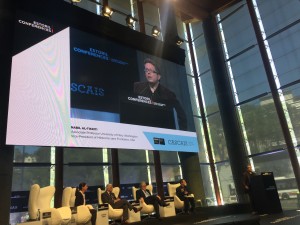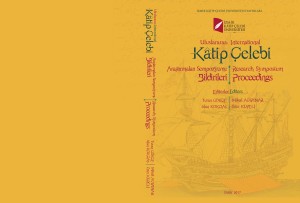On 19 April, Associate Professor of History Nabil Al-Tikriti spoke at Virginia Tech’s School of Public and International Affairs (SPIA), in Alexandria, VA. The topic presented was the global humanitarian system and its impact in the Middle East and other zones of crisis. Attendees included both Virginia Tech SPIA graduate students and undergraduate students associated with both Prof. Ariel Ahram‘s class on Global Security (GIA 5514), and the Washington Semester program.
Prof. Al-Tikriti has worked since 1988 in field development and humanitarian relief programs for Africare, Plan International, Catholic Relief Services (CRS), and Médecins Sans Frontières (MSF) / Doctors Without Borders in over a dozen countries in Africa and the Middle East. He also served on the MSF / Doctors Without Borders USA Board of Directors in 2011-17, and as Vice President in 2016-17.




